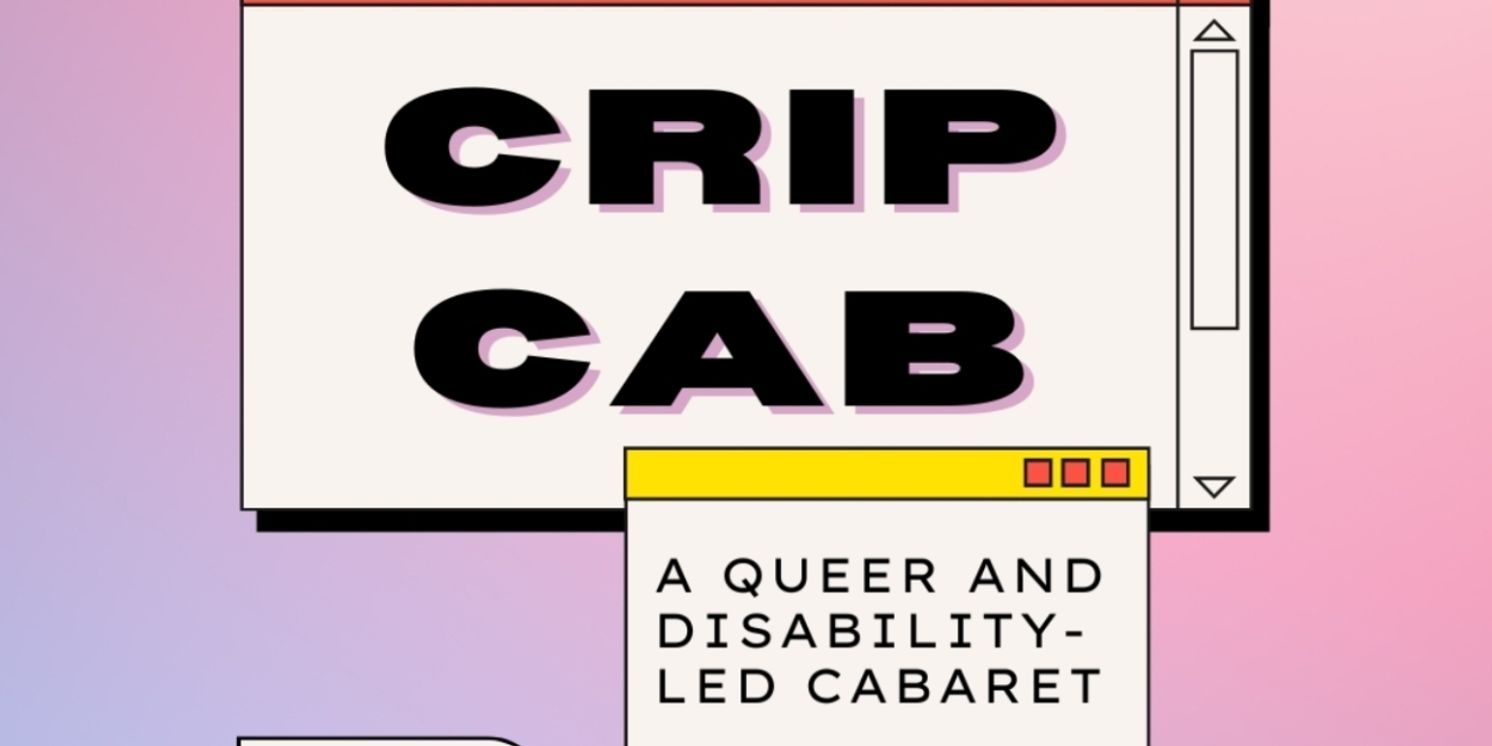Review: CRIPCAB at Buddies In Bad Times
Cabaret of queer disabled artists is hot, bittersweet joy.

It’s hard to be disabled in the world of the performing arts. Hours can be punishing, physical expectations are high, and remuneration is low. The chance of achieving health insurance coverage as an artist, with precarious, piecemeal work, is even lower. This is the provenance of CripCab, a new performance showcase that premiered at Buddies in Bad Times theatre this week as part of Toronto Pride. CripCab, the brainchild of The Disability Collective, is a cabaret devoted to queer disabled performers. It is a celebration of life and art in the midst of an often hostile world, and an attempt to expand much needed accessibility efforts at Pride.
When I was diagnosed with type 1 diabetes more than 25 years ago, I felt any possibility of working as a performer slipping away. Even covering the performing arts as a disabled theatre critic or attending as a patron can be difficult; my blood sugar can fluctuate at a moment’s notice, and my insulin pump and continuous glucose monitor both have alarms that, for corporate liability reasons, I can never completely silence. Anxiety is a common feeling for me night after night in the theatre, trying to maintain homeostasis to avoid a beep or buzz that in reality means “your life is in danger!” but will have fellow theatre patrons rolling their eyes or muttering at the perception of a cell phone left on.
The narrow definition of acceptability within our rigid social structures surrounding entertainment is expanding. Relaxed performances allow audiences with many needs to enjoy the theatre. Yet, it remains difficult to be a performer outside of these norms. Disabled bodies, fat bodies, BIPOC bodies, queer and trans bodies – all have been and continue to be derided or ignored on a larger scale. CripCab features performers who refuse this narrative, pushing for visibility and celebration.
Host Dainty Smith, herself a burlesque performer, kept things bawdy, light, and moving, as she introduced each act, a mixture of burlesque, song, dance, theatre, and comedy.
The performances aren’t all linked to disability or queerness, but some of the more moving moments embrace these themes. “Hercules is Trans” involves drag king El Experimento, painted gold and wrapped in a toga with laurel leaf headband, singing the Disney film’s “Go the Distance” before revealing a torso painted with the mythological figure’s muscles, then dancing to a rock version of “Holding Out For a Hero” while trailing a trans flag like a cape.
BrickHouse Productions (Sadie Cahill, Grace Kingston, and Emily Duckett) performed a dance piece to monologues about the shared and diverse experiences of being female and living with ADHD, a condition vastly underdiagnosed in women, and Rosalind Goodwin delivered a preview of her upcoming Fringe show, Hermaphroditus, about a Greek deity who shows up to fight anti-trans legislation on Olympus.
Other moments are just delightfully silly, including vampiric burlesque performer Craven Blood, strutting his stuff in a white suit covered with glitter blood spatters, or Margaret Rose’s song about avoiding a clothing dilemma by choosing to stay nude.
Burlesque has a robust contingent in general with performances by former Miss Canada Plus Ivory, Indigenous artist Hope Heartbreaker (featuring a set of ACAB pasties), and Joe Peach, who cleverly incorporated the most risqué move of all in sensually slipping off their Covid mask as part of the act.
The show, of course, is designed to be enjoyed by as many people as possible. The host provides a detailed description of each performer before they enter, seating is accessible, and masking is a must for the audience (one performer, comedian Chiron Barron, who performed masked, remarked that they didn’t think they’d ever get to do standup again after contracting Long Covid).
Most delightful was the presence of two ASL-English interpreters, Amanda Hyde and Savannah Tomev, working in tandem with two Deaf interpreters, Gaitrie Persaud-Killings and Alma Amorim, the latter two on stage dressed for the occasion and adding greatly to the rhythm, emotion, and humour of each performance (if you’ve never seen the ASL term for “masturbate,” you will here). For the uninitiated, ASL-English interpreters interpret spoken language into ASL for the Deaf interpreters, who then communicate to the Deaf/HoH audience members; the Deaf interpreters’ fluency in sign and in Deaf culture helps them communicate more easily and fluently with their audience.
“Representation matters” is a phrase that’s often tossed around as a soundbite, but on a deeper level, it’s true. When I saw a continuous glucose monitor unapologetically displayed on a burlesque performer’s arm, the same monitor as mine, I admit I felt tears prickle the back of my eyes while the audience roared.
I thought about how I’d never performed burlesque because of my medical devices, how I’d avoided using lifesaving technology for years because it might make a noise at the theatre, and how nice it would be if the idiosyncrasies and diversity of the human body were understood, and even celebrated, more often. It’s hot, bittersweet joy; a cognizance that life is so damn hard but we’re just going to keep living it anyway.
Sure, things started half an hour late; whatever. Okay, some of it’s a little rough around the edges. Who cares? It’s wildly, unabashedly human, and, yes, it matters.
Reader Reviews

Videos

